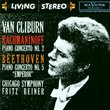| All Artists: Eugene Drucker, Lawrence Dutton, David Finckel, Philip Setzer, Emerson String Quartet Title: Bela Bartok: The 6 String Quartets - Emerson String Quartet Members Wishing: 0 Total Copies: 2 Label: Deutsche Grammophon Release Date: 10/25/1990 Genre: Classical Style: Chamber Music Number of Discs: 2 SwapaCD Credits: 2 UPC: 028942365728 |
Search - Eugene Drucker, Lawrence Dutton, David Finckel :: Bela Bartok: The 6 String Quartets - Emerson String Quartet
 | Eugene Drucker, Lawrence Dutton, David Finckel Bela Bartok: The 6 String Quartets - Emerson String Quartet Genre: Classical
The six quartets of Bartók have been well represented on record, far better than the six of Schoenberg or the fifteen of Shostakovich. The choice on Compact Disc, however, is an easy one, for the Emerson Quartet not o... more » ![header=[] body=[This CD is available to be requested as disc only.]](/images/attributes/disc.png?v=15401716) ![header=[] body=[This CD is available to be requested with the disc and back insert.]](/images/attributes/disc_back.png?v=15401716) ![header=[] body=[This CD is available to be requested with the disc and front insert.]](/images/attributes/disc_front.png?v=15401716) ![header=[] body=[This CD is available to be requested with the disc, front and back inserts.]](/images/attributes/disc_front_back.png?v=15401716) |
Larger Image |
CD DetailsSynopsis
Amazon.com The six quartets of Bartók have been well represented on record, far better than the six of Schoenberg or the fifteen of Shostakovich. The choice on Compact Disc, however, is an easy one, for the Emerson Quartet not only plays the music better than any other ensemble, but gets all six essays onto two discs. Making roses out of what must seem more like a collection of thistles to most others who attempt to play the set, the Emerson players show the kind of ensemble polish that caused one European critic to complain, "too smooth.... I like my Bartók rougher." But awkwardness and rhythmic uncertainty, which have made many a lesser group sound rough in this music, should not be confused with expressive edge, which the Emersons bring to the music in full measure. Their readings are extraordinarily revealing, high-intensity, not at all for the faint of heart. With the odd-numbered quartets on one disc and the even on the other, each CD is a "microcosmos" of the whole set. The sound quality is excellent throughout. --Ted Libbey Similar CDs
Similarly Requested CDs
|
CD ReviewsA startling range of sound and beauty from the composer and Craig Matteson | Ann Arbor, MI | 11/05/2005 (5 out of 5 stars) "Bela Bartók was a very great composer and virtuoso pianist who wrote some of the most important music of the twentieth century. Born in Transylvania, Hungary in 1881, he received his first music lessons from his mother who was herself a gifted pianist. He began performing in public at an early age, and received a solid musical education. At eighteen he enrolled at the Royal Academy of Music in Budapest. There he continued his studies in piano and composition. His early compositional style was modeled on Brahms (a great choice). His interests expanded and he not only began using folk elements of Hungary, but wanted to explore musical elements from his home in Transylvania, as well as Romanian and Slavonic materials. Bartók became friends with Zoltan Kodály and they toured around the region collecting folk songs that became important compositional resources for both of them. The features of asymmetric rhythms, polytonality, and piercing dissonances in their music are all rooted in these folk traditions. However, Bartók was also influenced by the music of the Impressionists and especially by Debussy. He came to America in 1940 and died from leukemia in 1945. All his life he had financial difficulties and was quite bitter at his inability to support his family. His fame has grown since his death and his music continues to be performed and appreciated. These six quartets are not only important pieces in the composer's catalog of works, but in the entire literature of the string quartet. While the playing of string instruments in small ensembles dates back hundreds of years, and any four together could be termed a quartet, the term "string quartet" actually means a specific ensemble of two violins, viola, and cello and, usually, a four movement form of fast, slow, menuet (or scherzo), and a fast finale. Yes, there are exceptions to these generalities, but they just prove the rule. The string quartet as we know it was developed and codified by Franz Joseph Haydn in the mid-eighteenth century. He wrote more than sixty of them, and his young friend, the genius Mozart, wrote more than twenty. Beethoven's sixteen string quartets, especially the later ones, became monuments in the form. Since then, many great composers have used this form to write some of their most beautiful, and, often, daring and complex music. Why this form for that kind of exploration? The string quartet allows for a wonderful combination of brilliant solo playing and a kind of ensemble playing that is not possible in a symphony orchestra. The textures are more transparent and the possibilities for compositional exploration push the limits of the instruments and players to the extreme. These six quartets were not written as a set. The first two were completed in 1909 and 1917, respectively. The last four were written in 1927, 1928, 1934, and 1939. Bartók had received a commission to write a seventh, but died before the work could be done. Although the driving rhythms, the ways Bartók has the players use their instruments, the sharp dissonances, and quarter-tones do not shock as they once did, they can still be quite disorienting to a listener who is not aware of what is going on. What a listener should not do is to expect Bartók to turn into Mozart or Schubert at any moment. Just relax and let the music come to you. After several hearings you will begin to develop connections in the music and realize that it is largely tonal music. Bartók may use twelve-tones, but never the technique of Schoenberg. His musical ideas of counterpoint and structure and rooted in the same traditional methods of the great composers, but his harmonic and rhythmic language has some twists in it and the playing style is extended. It is really quite beautiful, poignant, and, at times, amazingly fun. The Emerson Quartet is a wonderfully talented ensemble. They bring great intelligence and skill to this music and I recommend this recording highly. Some might wish a broader, less exact playing style, but I am not one of them. Bartók meant exactly what he wrote down and it takes a monumental technique to pull off. Extra arm waving and less precise technique do not make for a better performance in my book. One of my teachers wisely insisted that so much of what is called "expression" in music is simply sloppy technique. He also insisted that if you can't play it the same, you can't play it different. He was absolutely right. Explore, Enjoy, and be Delighted!" Dive in Jock | Melbourne, Australia | 11/27/1999 (5 out of 5 stars) "If you are new to Bartok or even twentieth century chamber works, then this recording is fine place to start. The Emerson Quartet built their lofty reputation through the status of this recording, and their series of spectacular concerts where they play the quartets, one to six in one night.These quartets can sound tough and uncompromising to tender ears but once you gently get to know them i.e. while studying or reading, your mind almost unconsciously unlocks the music and you soon are struck by the realisation that this is amongst the most beautiful, moving and exciting music you may ever hear. These quartets span Bartok's entire career and are quite occupy quite different sound worlds. The first is early, a good acclimatiser but only really a foothill, the second is gentle and humane, troubled and reflective, a deeply emotional work, the third: short, intense, challenging, but life-affirmingly rhythmic with a wild joyous close, then the grand showpiece, the fourth contains some of the most astonishing and exhilarating sounds you will hear some from a quartet. I still am cool towards the fifth and sixth, dunno they just don't click, indeed not everyone will take to shine to all or any of this music. The trick is to not sit sternly into front of the speakers, waiting on revelation, just give the music a chance to come to you." Astounding Brilliance and Virtuousity Humbert Humbert | CA, United States | 01/04/2004 (5 out of 5 stars) "The six quartets penned by the original and brilliant Béla Bartók represent the pinnacle of musical, particullarly modern, compostion in music. I will try to list a few of the many reasons these compostions are masterpieces. First of all, Bartók demonstrated the limits of what is and is not tonality. One must admire the amazing truce Bartók seemed to make with the tonal and atonal techniques. Second of all, the imagination and originality shown by the various demands on the performer to create some of the most unusual sounds from the string instruments, such as the "Bartók pizzacato" employed the most in the fourth movement of the fourth quartet, which calls on the performer to pluck a string so hard that it hits the fingerboard, was unprecedented by any composer for any instruments. Finally, and possibly most importantly, these quartets contain the power to inflict any emotion upon ther listener whether it is exhilartion to depression while encompassing the use of the techniques listed above. These quartets can be very violent and furious, but also can contain an original form of serenity.
As for the Emerson String Quartet's rendition of these quartets, I uphold as much admiration one can have for the performer without taking away from the actual composer's credit. The quartet always maintains the correct amount of balence that is a necessity for the four instruments. The Emerson also is able to always hit each percussive and dissonant chord simultainiously with a new level of perfection and percision. The tempi chosen for the various movements is very agreeable and never sounds rushed or dragged. This is a very crisp recording that has no background interference. I also must mention the unity the quartet maintains in the rapid moments of the music, such as the in second movement of the second quartet. These quartets are recommended for everyone, but might not attract those who just enjoy music to serve in the background rather than to be analyzed. Enjoy the great rendition of the Emerson perfecting Bartók!!" |

 Track Listings (11) - Disc #1
Track Listings (11) - Disc #1
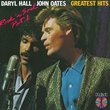
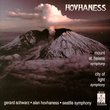
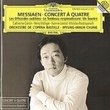
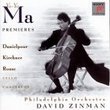




![Bizet: Carmen / Jessye Norman, Freni, Shicoff, Estes, Le Roux; Ozawa [Highlights]](https://nationalbookswap.com/cd//m/87/0887/6020887.jpg)
